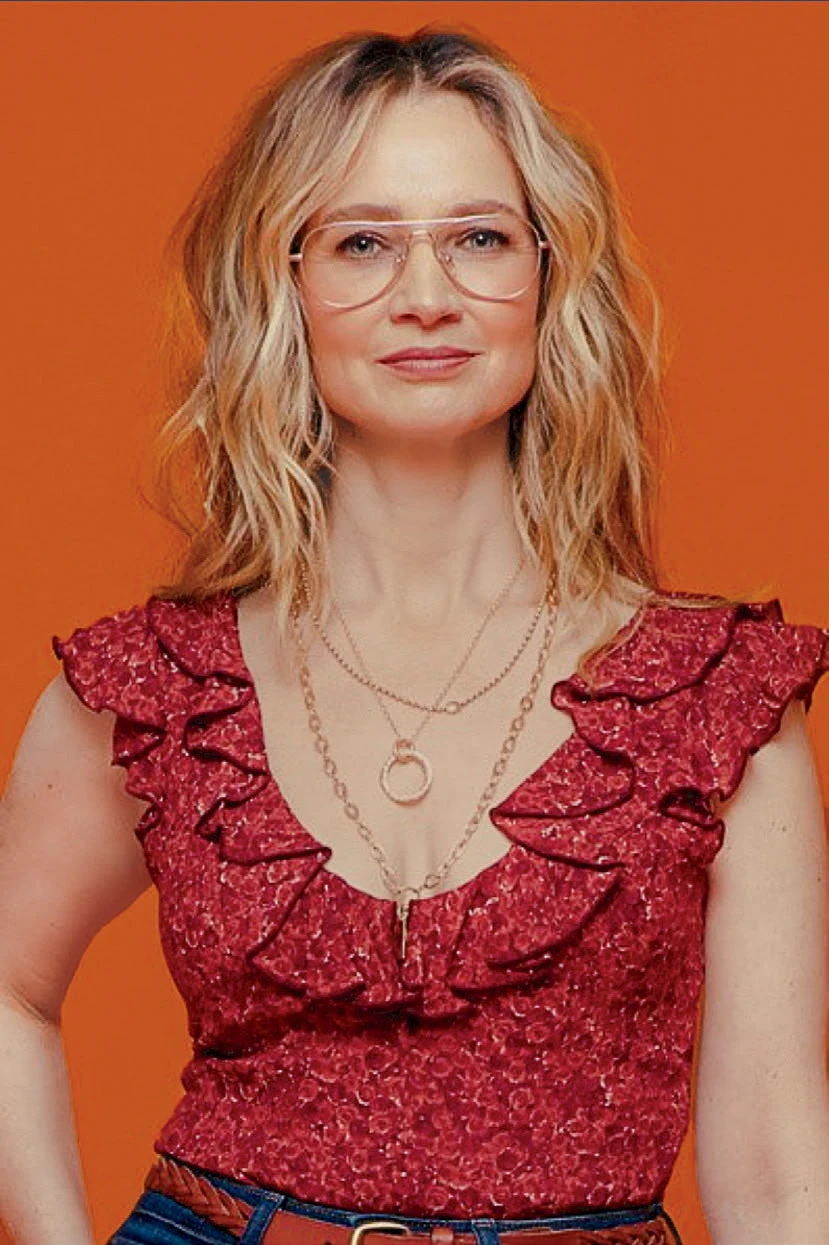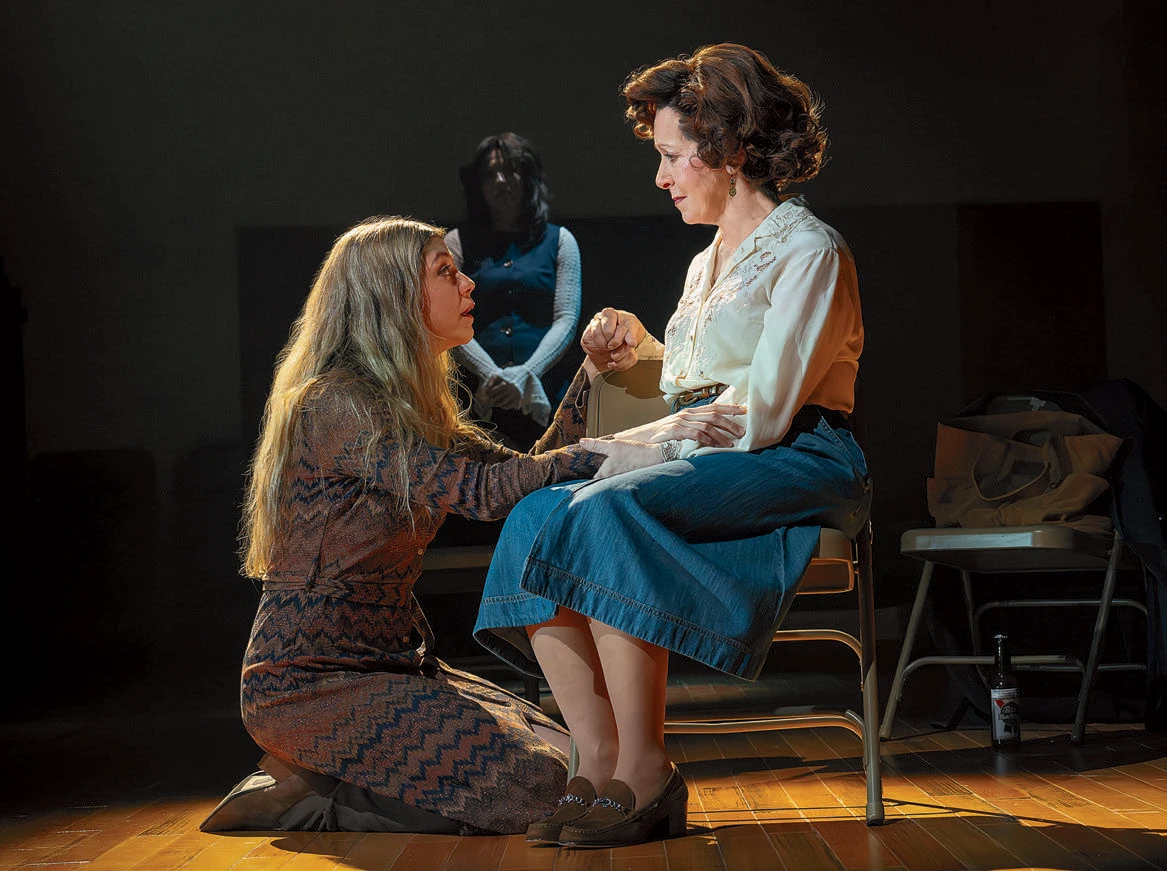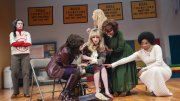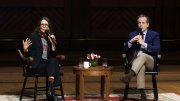In Liberation, playwright Bess Wohl ’96 looks back at the second-wave feminism of the 1970s to examine both progress and backsliding in achieving equality for women in American society. But that sounds like a summary of a thesis paper, while Wohl’s play is entertainment. It is funny, angry, and bittersweet as it explores how women are treated and viewed—literally, in a second-act scene where the entire cast is naked, turning vulnerability into a powerful expression of humanity. The play collapses the distance between past and present by shifting time periods and repeatedly breaking the fourth wall, as the protagonist inhabits her mother’s experiences in the 1970s before becoming a parent herself.

After earning acclaim and buzz off-Broadway last season, the play opens on Broadway on October 28. The plot was inspired by Wohl’s own mother, a onetime activist who worked at Ms. magazine when Wohl was young. The playwright also interviewed numerous women who were part of the 1970s feminist movement. The narrator is not her, Wohl has noted, but creating that stand-in character proved crucial to bringing the show to life. (This interview has been edited for length and clarity.)
The play is grounded in reality but is also filled with meta moments, and it breaks the fourth wall from the opening scene. Why use those techniques?
I wanted to disrupt the normal way a play unfolds. I wanted it to be messy and show its seams, like this narrator is trying to solve something; maybe she can and maybe she can’t. Things will fall apart and won’t come out exactly the way she wanted. She’ll lose control of the narrative— because that’s my experience of making art, and that mirrors some of the difficulties of activism itself.
The narrator creates a bond with the audience and allows us to see the connections and gaps between generations. Did writing that character help you find the play?
All of my plays have a pretty long gestation period. But this one took longer than most, maybe 15 years of thinking about it. I wrote other versions. One was fully set in the 1970s, about women starting a newsletter together. I did workshops and thought it was going into production but then totally scratched it.
Having a character from the present day was what cracked it open for me. I talked to women from the movement, which was incredibly inspiring, but I also knew not to be overly devoted to creating something like a documentary. It’s a patchwork quilt of fiction, fact, reality, fantasy, and time-jumping.
A narrator taking the audience on this journey helped me figure out how to write so these two time periods crash into each other, asking, “What is different and what’s the same? How did we get here?” And, all caps, “WHAT HAPPENED? What happened to all of that activism and optimism and solidarity and community?” It’s a woman asking both on a macro-political scale and in her own life.
Do you have any concerns about losing the conversational and physical intimacy when the play moves to the larger Broadway stage?
The intimacy is important to the heart of the play, but there’s also this huge canvas in terms of ideas and political movements and seismic shifts in the culture. I hope we can preserve that intimacy but lift everything to embrace the size of the questions being asked: What does it mean to be in community? What does freedom mean both on a personal and a political level?
Do you worry that colleges or regional theaters will feel intimidated about staging this play in this political climate—because of the topics and the nudity?
With my other plays, people have often done a version of it that works for their community and the comfort level of their actors. So I’m hopeful that this play has a long life and can speak to a lot of different people who come from a lot of different backgrounds. If you want to do my work, I’m excited to find a way to make it possible for you.

You’re writing about your mother as a feminist but also about becoming a parent. How did your mom react when she saw the play?
This play is so much about my own mother and my relationship with her. She’s in her mid-eighties and she’s so precious to me. I wanted to be honest about our relationship and the difficulties that she faced and to honor her journey and how proud I am of her.
While I was writing, I’d say, “I don’t know if you’re going to like this play.” And she kept saying to me, “Just go for it. Don’t hold anything back.” That really set me free.









